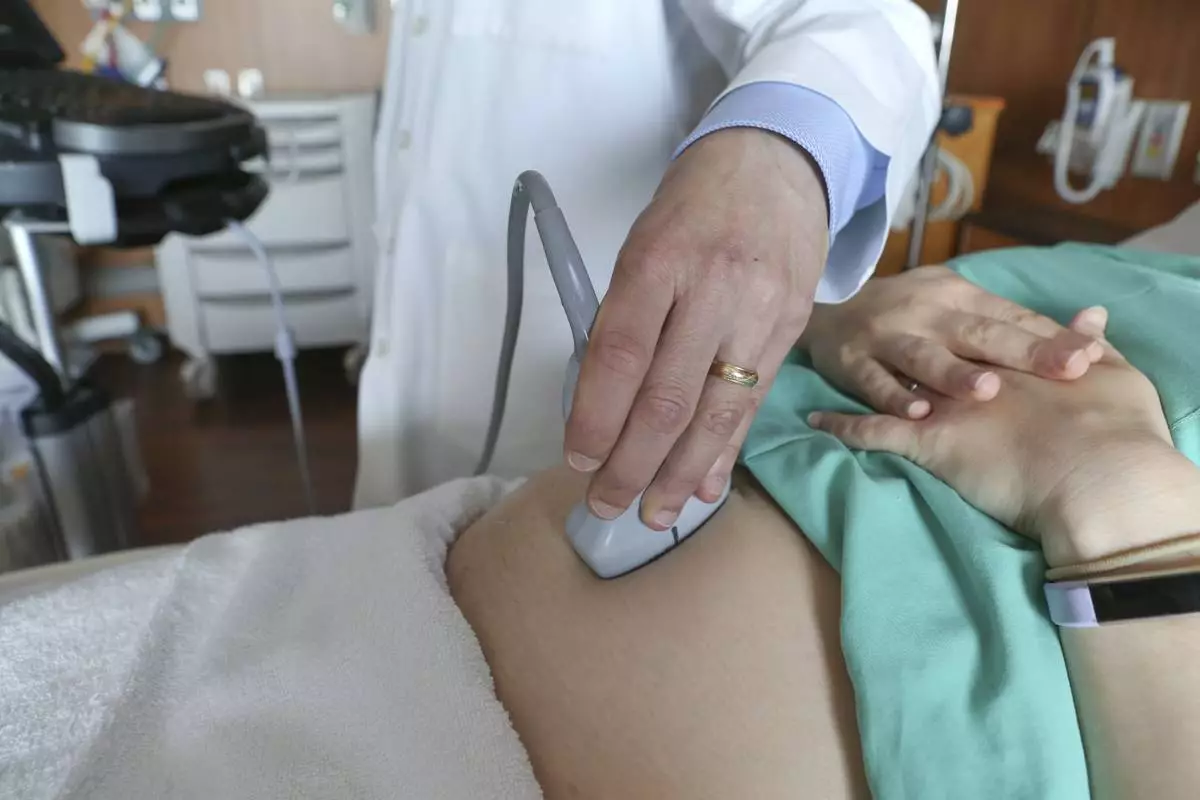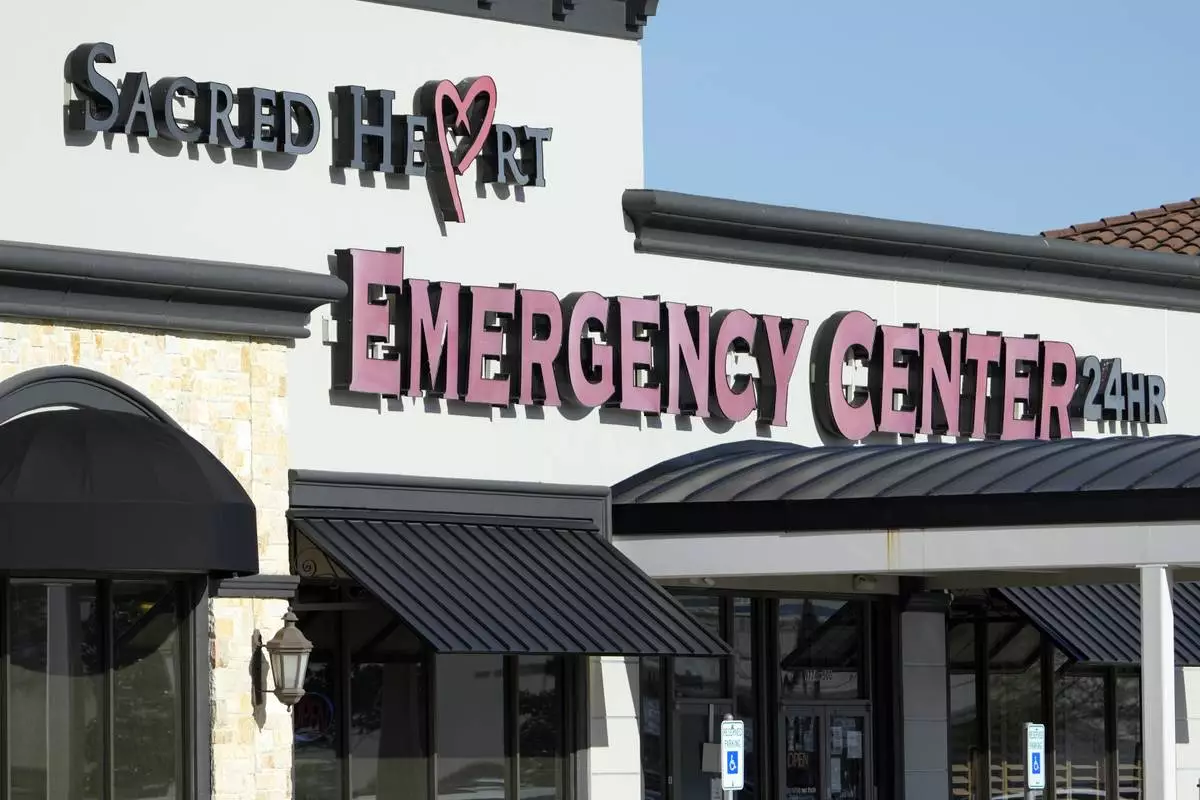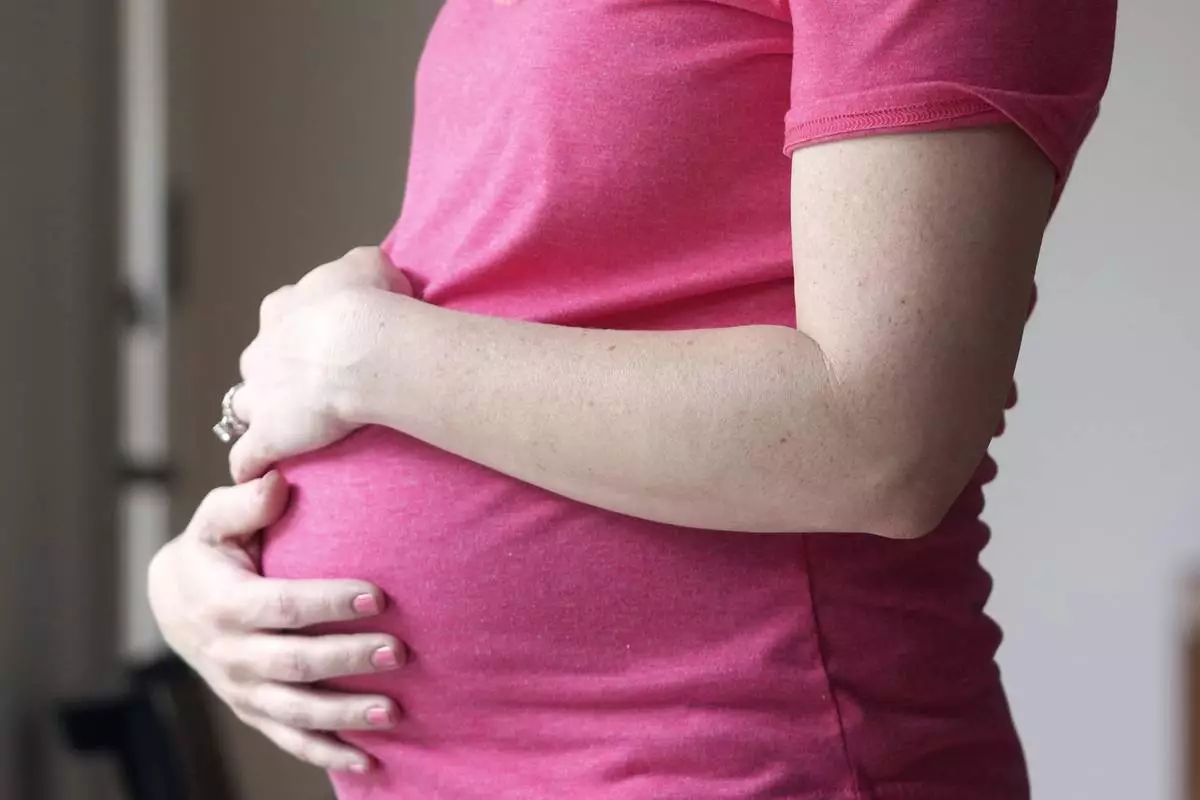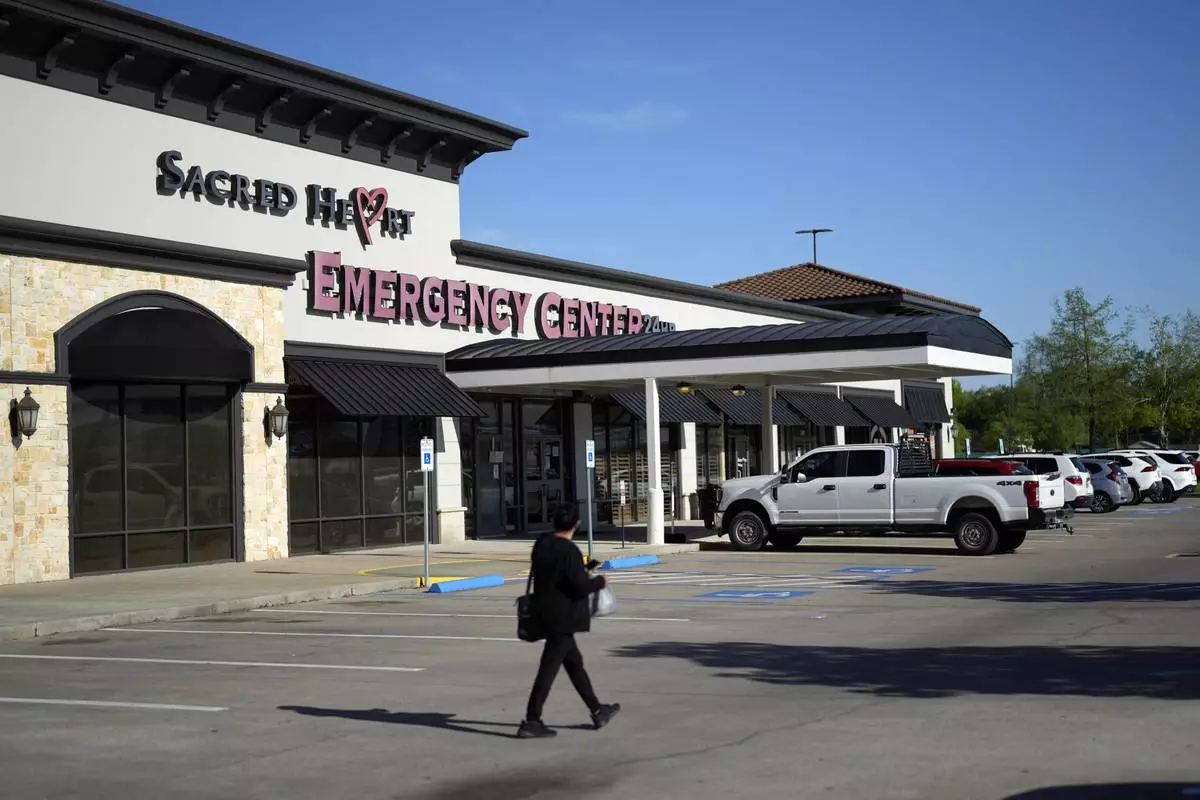Feeling self-conscious about her post-pregnancy stretch marks, Indiana decided to start posting nude pictures of herself while out on hikes.
A mum-of-three has revealed how she has come to terms with her stretchmarks after having three children by hiking in her birthday suit and posting pictures of her naked jaunts to Instagram.
Always blessed with a slim body, businesswoman Indiana Lush, 43, a divorcee who runs her own cleaning firm, felt her self-esteem plummet after the birth of her third child in 2010, when she started gaining weight and developing stretchmarks.
But in 2016, while out hiking, she had an epiphany, deciding to strip off and bare her bottom to the world, a moment she commemorated with a snap she later posted to Instagram – now boasting 1,500 followers to her site, where she posts weekly updates of her naked shenanigans.
Indiana, of Tallai, South East Queensland, Australia, who does not wish to name her children or her ex-husband, said of her defining moment: “I didn’t really think much of it at the time, other than it was something I felt a strong urge to do.
“Then when I put my naked hiking picture on Instagram, suddenly lots of people liked and said nice things about it – which made me feel really good about myself.
“I had done a bit of modelling in my 20s and so was always fairly confident about my appearance and comfortable being photographed.”
She continued: “But after having kids, your body starts to change and things like cellulite and stretch marks appear, which made me feel a lot more self-conscious about myself than I ever had been before.
“So taking pictures was a way of reminding myself that I am still attractive, and it has been a big help in returning to me an element of self-love.”
Growing up in Auckland, New Zealand, Indiana was taken on hikes and camping trips by her outdoorsy father Peter, a landscape gardener, as soon as she could walk, along with her siblings Justin, 46, and Luke, who sadly passed away two years ago at the age of 36.
Paradoxically, though, she found it “tedious and dull” until her early 20s, when a terrible twist of fate saw her take up the hobby in earnest.
Indiana, who moved to Australia aged 25, explained: “When I was 19 my dad was hit by a car in a drink-driving incident and lost the use of his legs as a result.
“He was really passionate about hiking and after the crash it made me realise how important it is to be able to walk and use your legs.”
She continued: “Then when he died five years later when I was 24, I started going for hikes, mainly as a way to connect with him.”
Soon her own passion for rambling was awoken and she regularly trekked for 20km at a time, through the stunning national parks around her new Australian home – even travelling to Peru, USA and Hawaii for lone walking holidays.
Back then, though, she would never have considered walking naked.
She continued: “It would have been too uncomfortable with all the backpacks and kit on, underneath the strong sun,” she admitted. “I did enjoy skinny dipping, though, in the waterfalls and brooks I found on my travels.”
Then in 2016, feeling particularly dejected by the ageing process, she was out walking one day in Binna Burra on the Gold Coast, when she was seized by the urge to bare all and her subsequent social media post changed her life.
Indiana, who is now happily involved with a man who she does not wish to name, said: “Social media is both a curse and a blessing.”
Indiana continued: “In many ways it makes people very anxious about how they look because it sets a standard of beauty.
“But it can also be a good ego boost, having people post nice comments about how you look naked, and it reminds you that you don’t have to be a supermodel to feel good about your body.”
Certainly, the positive response Indiana received to her naked snaps provided a massive confidence boost and she began photographing herself regularly, using a self-timer on her phone which she would lean against a tree or her bag.
As a result, her Instagram presence and followers quickly grew, hand-in-hand with her self-esteem.
But her gallery of nude selfies caused some controversy within her own family, with her brother Justin deciding to stop following her.
She laughed: “He didn’t want to see pictures of my naked bum, which I guess is fair enough.”
She continued: “But while I think my dad would’ve been pretty embarrassed, he would have seen the funny side to it.”
Keen to keep stripping off well into her dotage, Indiana wants to encourage anyone who is struggling to come to terms with ageing to follow her “liberating” lead.
She continued: “I tell all of my friends to go for it and do it all the time, but none have taken me up on it yet.”
Indiana added: “I think because it can be a little frightening getting naked and a lot of people feel uncomfortable doing it.
“But for me it has been totally liberating – both exhilarating and enlightening in equal measure.”
WASHINGTON (AP) — One woman miscarried in the lobby restroom of a Texas emergency room as front desk staff refused to check her in. Another woman learned that her fetus had no heartbeat at a Florida hospital, the day after a security guard turned her away from the facility. And in North Carolina, a woman gave birth in a car after an emergency room couldn't offer an ultrasound. The baby later died.
Complaints that pregnant women were turned away from U.S. emergency rooms spiked in 2022 after the U.S. Supreme Court overturned Roe v. Wade, federal documents obtained by The Associated Press reveal.
The cases raise alarms about the state of emergency pregnancy care in the U.S., especially in states that enacted strict abortion laws and sparked confusion around the treatment doctors can provide.
“It is shocking, it’s absolutely shocking,” said Amelia Huntsberger, an OB/GYN in Oregon. “It is appalling that someone would show up to an emergency room and not receive care -- this is inconceivable.”
It's happened despite federal mandates that the women be treated.
Federal law requires emergency rooms to treat or stabilize patients who are in active labor and provide a medical transfer to another hospital if they don’t have the staff or resources to treat them. Medical facilities must comply with the law if they accept Medicare funding.
The Supreme Court will hear arguments Wednesday that could weaken those protections. The Biden administration has sued Idaho over its abortion ban, even in medical emergencies, arguing it conflicts with the federal law.
“No woman should be denied the care she needs,” Jennifer Klein, director of the White House Gender Policy Council, said in a statement. “All patients, including women who are experiencing pregnancy-related emergencies, should have access to emergency medical care required under the Emergency Medical Treatment and Labor Act (EMTALA).”
Pregnant patients have “become radioactive to emergency departments” in states with extreme abortion restrictions, said Sara Rosenbaum, a George Washington University health law and policy professor.
“They are so scared of a pregnant patient, that the emergency medicine staff won’t even look. They just want these people gone," Rosenbaum said.
Consider what happened to a woman who was nine months pregnant and having contractions when she arrived at the Falls Community Hospital in Marlin, Texas, in July 2022, a week after the Supreme Court’s ruling on abortion. The doctor on duty refused to see her.
“The physician came to the triage desk and told the patient that we did not have obstetric services or capabilities,” hospital staff told federal investigators during interviews, according to documents. “The nursing staff informed the physician that we could test her for the presence of amniotic fluid. However, the physician adamantly recommended the patient drive to a Waco hospital.”
Investigators with the Centers for Medicare and Medicaid Services concluded Falls Community Hospital broke the law.
Reached by phone, an administrator at the hospital declined to comment on the incident.
The investigation was one of dozens the AP obtained from a Freedom of Information Act request filed in February 2023 that sought all pregnancy-related EMTALA complaints the previous year. One year after submitting the request, the federal government agreed to release only some complaints and investigative documents filed across just 19 states. The names of patients, doctors and medical staff were redacted from the documents.
Federal investigators looked into just over a dozen pregnancy-related complaints in those states during the months leading up to the U.S. Supreme Court's pivotal ruling on abortion in 2022. But more than two dozen complaints about emergency pregnancy care were lodged in the months after the decision was unveiled. It is not known how many complaints were filed last year as the records request only asked for 2022 complaints and the information is not publicly available otherwise.
The documents did not detail what happened to the patient turned away from the Falls Community Hospital.
Other pregnancies ended in catastrophe, the documents show.
At Sacred Heart Emergency Center in Houston, front desk staff refused to check in one woman after her husband asked for help delivering her baby that September. She miscarried in a restroom toilet in the emergency room lobby while her husband called 911 for help.
“She is bleeding a lot and had a miscarriage,” the husband told first responders in his call, which was transcribed from Spanish in federal documents. “I’m here at the hospital but they told us they can’t help us because we are not their client.”
Emergency crews, who arrived 20 minutes later and transferred the woman to a hospital, appeared confused over the staff's refusal to help the woman, according to 911 call transcripts.
One first responder told federal investigators that when a Sacred Heart Emergency Center staffer was asked about the gestational age of the fetus, the staffer replied: “No, we can’t tell you, she is not our patient. That’s why you are here.”
A manager for Sacred Heart Emergency Center declined to comment. The facility is licensed in Texas as a freestanding emergency room, which means it is not physically connected to a hospital. State law requires those facilities to treat or stabilize patients, a spokeswoman for the Texas Health and Human Services agency said in an email to AP.
Sacred Heart Emergency’s website says that it no longer accepts Medicare, a change that was made sometime after the woman miscarried, according to publicly available archives of the center's website.
Meanwhile, the staff at Person Memorial Hospital in Roxboro, North Carolina, told a pregnant woman, who was complaining of stomach pain, that they would not be able to provide her with an ultrasound. The staff failed to tell her how risky it could be for her to depart without being stabilized, according to federal investigators. While en route to another hospital 45 minutes away, the woman gave birth in a car to a baby who did not survive.
Person Memorial Hospital self-reported the incident. A spokeswoman said the hospital continues to “provide ongoing education for our staff and providers to ensure compliance.”
In Melbourne, Florida, a security guard at Holmes Regional Medical Center refused to let a pregnant woman into the triage area because she had brought a child with her. When the patient came back the next day, medical staff were unable to locate a fetal heartbeat. The center declined to comment on the case.
Emergency rooms are subject to hefty fines when they turn away patients, fail to stabilize them or transfer them to another hospital for treatment. Violations can also put hospitals' Medicare funding at risk.
But it’s unclear what fines might be imposed on more than a dozen hospitals that the Biden administration says failed to properly treat pregnant patients in 2022.
It can take years for fines to be levied in these cases. The Health and Human Services agency, which enforces the law, declined to share if the hospitals have been referred to the agency's Office of Inspector General for penalties.
For Huntsberger, the OB-GYN, EMTALA was one of the few ways she felt protected to treat pregnant patients in Idaho, despite the state's abortion ban. She left Idaho last year to practice in Oregon because of the ban.
The threat of fines or loss of Medicare funding for violating EMTALA is a big deterrent that keeps hospitals from dumping patients, she said. Many couldn't keep their doors open if they lost Medicare funding.
She has been waiting to see how HHS penalizes two hospitals in Missouri and Kansas that HHS announced last year it was investigating after a pregnant woman, who was in preterm labor at 17 weeks, was denied an abortion.
“A lot of these situations are not reported, but even the ones that are — like the cases out of the Midwest — they're investigated but nothing really comes of it,” Huntsberger said. “People are just going to keep providing substandard care or not providing care. The only way that changes is things like this.”
President Joe Biden and top U.S. health official Xavier Becerra have both publicly vowed vigilance in enforcing the law.
Even as states have enacted strict abortion laws, the White House has argued that if hospitals receive Medicare funds they must provide stabilizing care, including abortions.
In a statement to the AP, Becerra called it the “nation's bedrock law protecting Americans' right to life- and health-saving emergency medical care.”
“And doctors, not politicians, should determine what constitutes emergency care," he added.
Idaho’s law allows abortion only if the life, not the health, of the mother is at risk. But the state's attorney general has argued that its abortion ban is “consistent” with federal law, which calls for emergency rooms to protect an unborn child in medical emergencies.
"The Biden administration has no business rewriting federal law to override Idaho’s law and force doctors to perform abortions,” Idaho Attorney General Raúl Labrador said in a statement earlier this year.
Now, the Supreme Court will weigh in. The case could have implications in other states like Arizona, which is reinstating an 1864 law that bans all abortions, with an exception only if the mother's life is at risk.
EMTALA was initially introduced decades ago because private hospitals would dump patients on county or state hospitals, often because they didn’t have insurance, said Alexa Kolbi-Molinas of the American Civil Liberties Union.
Some hospitals also refused to see pregnant women when they did not have an established relationship with physicians on staff. If the court nullifies or weakens those protections, it could result in more hospitals turning away patients without fear of penalty from the federal government, she said.
“The government knows there’s a problem and is investigating and is doing something about that,” Kolbi-Molinas said. “Without EMTALA, they wouldn’t be able to do that.”

FILE - A doctor performs an ultrasound scan on a pregnant woman on Aug. 7, 2018, at a hospital in Chicago. Complaints about pregnant women being turned away from emergency rooms spiked in the months after states began enacting strict abortion laws following the 2022 U.S. Supreme Court decision overturning Roe v. Wade. The cases are detailed in federal documents obtained by The Associated Press and raise serious questions about the state of emergency pregnancy care in the U.S. (AP Photo/Teresa Crawford, File)

Sacred Heart Emergency Center is pictured Friday, March 29, 2024, in Houston. Complaints about pregnant women being turned away from emergency rooms spiked in the months after states began enacting strict abortion laws following the 2022 U.S. Supreme Court decision overturning Roe v. Wade. At Sacred Heart Emergency Center in Houston, front desk staff refused to check-in one woman after her husband asked for help delivering her baby. She miscarried in a restroom toilet in the emergency room lobby while her husband called 911 for help. (AP Photo/David J. Phillip)

FILE - A pregnant woman stands for a portrait in Dallas, May 18, 2023. Complaints about pregnant women being turned away from emergency rooms spiked in the months after states began enacting strict abortion laws following the 2022 U.S. Supreme Court decision overturning Roe v. Wade. The cases are detailed in federal documents obtained by The Associated Press and raise serious questions about the state of emergency pregnancy care in the U.S. (AP Photo/LM Otero, File)

Sacred Heart Emergency Center is pictured Friday, March 29, 2024, in Houston. Complaints about pregnant women being turned away from emergency rooms spiked in the months after states began enacting strict abortion laws following the 2022 U.S. Supreme Court decision overturning Roe v. Wade. At Sacred Heart Emergency Center in Houston, front desk staff refused to check-in one woman after her husband asked for help delivering her baby. She miscarried in a restroom toilet in the emergency room lobby while her husband called 911 for help. (AP Photo/David J. Phillip)







